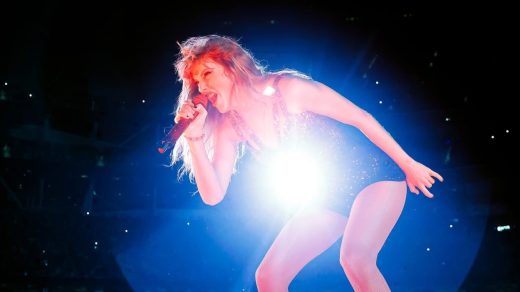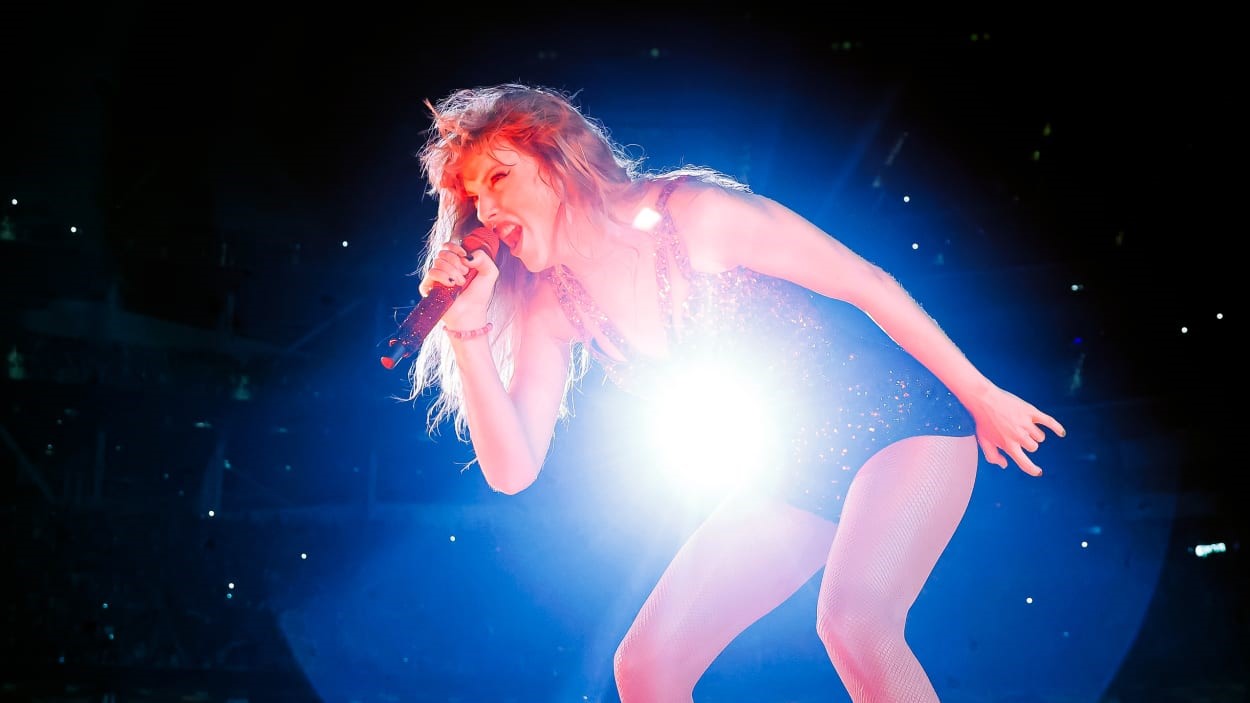Why Taylor Swift is arguably the most powerful person in tech
The biggest box office hit of October, and maybe all of the fall, is almost certainly going to be Taylor Swift: The Eras Tour. One research firm says that Swift’s Eras live concert tour, upon which the film is based, may gross $2.2 billion in North America alone. Now the recorded version is coming to movie theaters in 100 countries so that people who couldn’t see the tour in person can experience it on the big screen.
Hollywood analysts are estimating that the film could open north of $100 million in its first weekend—a record for any concert film. But the movie is notable for another reason: It’s not being distributed by a Hollywood studio. Instead, it will be distributed by the movie theater chain AMC.
The unusual arrangement was the brainchild of Swift and her team after the superstar reportedly disagreed with Hollywood studios who wanted the film but wanted to wait until 2025 to release it. According to a report from Puck, Swift’s team then called up Adam Aron, the CEO of the beleaguered AMC theater chain, and asked AMC to distribute the film directly instead. Such a distribution method is highly unusual and, in going this route, AMC risks incurring the wrath of Hollywood studios, which generate the films on which it relies. Yet Aron reportedly personally negotiated the offer with Swift’s team.
Perhaps Aron understood that it was better to irk Hollywood heavyweights than Swift herself. If so, he wouldn’t be the first CEO to capitulate to Swift’s desires. The singer has a history of getting the biggest business leaders in the world to bow to her. Here are the major power players who already have.
Apple’s Eddy Cue, senior vice president of services
Without a doubt, the event that most clearly illustrated how Swift’s power extends beyond the music industry was the time she got the most profitable and powerful tech company in the world to change its ways.
In June 2015, Apple was weeks away from launching its Apple Music subscription service. In order to lure customers, Apple was offering prospective subscribers three months of the service for free. But during that time, the writers, producers, and artists behind the songs streamed would not be paid any royalties by Apple.
Plenty of musicians criticized Apple for this move, arguing that the company was profiting off artists’ works by using them to amass a large user base without compensating the creators of those works. However, Apple refused to budge. That is, until Swift took to her Tumblr page (Web Archive here) and gave Apple an ultimatum in an open letter to the company.
“I write this to explain why I’ll be holding back my album, 1989, from the new streaming service, Apple Music,” Swift wrote. “ . . . I’m sure you are aware that Apple Music will be offering a free 3 month trial to anyone who signs up for the service. I’m not sure you know that Apple Music will not be paying writers, producers, or artists for those three months. I find it to be shocking, disappointing, and completely unlike this historically progressive and generous company.”
Swift’s open letter, titled “To Apple, Love Taylor,” was posted on June 21. The next day, Eddy Cue, one of Apple’s most powerful executives and the company’s vice president of services, which includes Apple Music, tweeted the company’s response: “We hear you @taylorswift13 and indie artists. Love, Apple.”
Apple Music launched on June 30, with artists getting paid royalties from Day 1—and Apple Music getting Swift’s 1989 album.
Spotify CEO Daniel Ek
Apple isn’t the only tech giant Swift has cowed. Spotify, the largest music streamer in the world, also learned the hard way where it stands in the Swift hierarchy. In late 2014, Swift pulled her entire catalog from Spotify over grievances with the relatively low royalties the music streaming giant paid artists—rates amounting to just hundredths of a cent or less per stream.
Swift’s music remained off the platform until June 2017. A month later, news broke that Spotify intended to go public in a direct listing. On April 3, 2018, the day of Spotify’s debut on the New York Stock Exchange (NYSE), Spotify CEO Daniel Ek told CBS News that he had taken “many, many” trips from Stockholm to Swift’s residence in Nashville to win her back. He admitted that he should have done a better job at communicating the royalty structure to Swift. “I take full ownership for doing that,” he said.
Then, just days before Spotify went public, Swift debuted her music video for Delicate exclusively on the platform. Whether she meant to or not, the move signaled to prospective investors that the biggest pop star in the world was firmly back on board with the company.
Elon Musk, owner of X/Twitter
By many accounts, Elon Musk is one of the most powerful men on the planet. He’s certainly the wealthiest. Yet his takeover of Twitter, now called X, has been disastrous, with advertisers and users fleeing the platform. In order to turn things around, Musk needs big names to re-engage fans on the platform.
That’s why, when Swift revealed the back covers for her upcoming rerelease of her bestselling 1989 album on the platform late last month, Musk offered the singer some unsolicited advice: “I recommend posting some music or concert videos directly on the X platform.”
How did Swift respond? She didn’t.
The takeaway? Even the richest and (some might argue) most powerful man in the world needs Swift more than she needs him.
As for AMC, taking Swift’s deal for The Eras Tour film has already paid off. The theater chain announced that within 24 hours of tickets going on sale, the film had shattered AMC’s U.S. record for the highest ticket sales in a single day, for any film in the company’s 103-year history.
(23)



